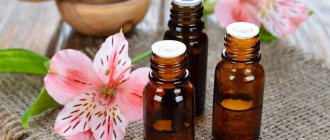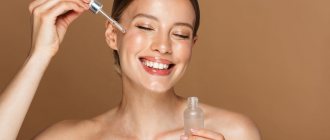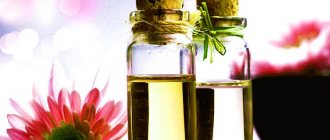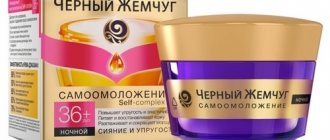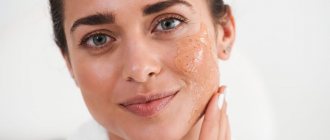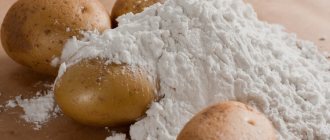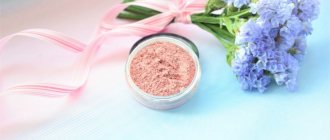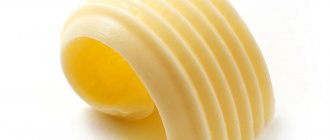Facial oil is the king among all my skincare products.
I use them in home care almost every day, alternating or supplementing my face cream with them, I especially love this combo during the cold season, when the skin triples its natural lipid protection and asks for help. By the way, this can happen to any type of skin - normal, dry and even oily or combination - like mine.
I’ve heard a lot from ordinary people and even from professional cosmetologists that oils are too heavy for the skin, clog pores, “the skin doesn’t breathe” underneath them, etc.
In my opinion, such an opinion can be formed for two reasons - either they choose the wrong products, or they use them incorrectly.
Therefore, I’ll tell you about my personal experience and share my own rating of the best facial oils , many of which I have already written separate reviews on on my blog. There is too much information on the Internet invented by someone who, it seems, has never held normal oil in his hands, let alone applied it to his face.
The main advantages of facial oils
Plant oils are the best cosmetic helper for the skin.
They are close in composition to human lipids. When applied to the skin, they “merge” with it, strengthening its protective barrier and preventing fluid loss.
In addition, these natural elixirs enrich the skin with a mass of substances necessary for its beauty, youth and health.
Natural oils can replace half of your cosmetics bag. Their functionality is so wide.
They can:
- Cleanse.
Vegetable oils are good cleansers. The secret is that fat dissolves in fat, and most of the dirt on the face (cosmetics, sebum) are fat-soluble substances. Therefore, oils can cleanse any type of skin, including oily skin.These natural helpers are able to dissolve and remove even stubborn mascara that ordinary “washes” cannot cope with.
- Moisturize.
The human body is covered with a hydro-lipid mantle, which prevents moisture loss. With age and under the influence of negative factors, this natural film becomes thinner, which leads to dry skin. Plant oils help preserve this valuable water-fat layer. - Protect.
The hydro-lipid mantle is also called the first skin barrier. This is due to the fact that it protects the body from external aggression - primarily from the sun and frost. We preserve and strengthen our own protective barrier with the help of natural oils - we prevent the destructive effects of external factors. - Supply.
Plant oils contain many valuable fatty acids and vitamins. We apply the product - we enrich the skin from the outside with everything it lacks. - Decontaminate.
Many herbal elixirs have a pronounced antibactericidal and anti-inflammatory effect. They “pull out” all the dirt and bacteria from the skin. They are an excellent option for preventing and combating acne. - Restore.
Oils accelerate regeneration, help the body “patch up” scars and acne marks, eliminate redness and peeling. - Rejuvenate.
These natural “wizards” deliver components to the skin, the deficiency of which leads to aging. The most valuable things in their composition are youth vitamins (A, C, E, group B) and unsaturated fatty acids (omega-3, -6, -9).
Individual components fight free radicals, which destroy the “building” proteins of our dermis (collagen and elastin) and provoke premature aging, decreased turgor, and the appearance of wrinkles. In particular, vitamin E has such an antioxidant effect.
For all their benefits, plant oils are convenient and pleasant to use. They:
- absorb well
- they smell delicious (we enhance their effect with aromatherapy),
- used as independent, basic care,
- can be combined with other cosmetics in every possible way (a few drops of oil can be added to a cream or serum),
- can be used as a base for makeup.
Recipes for the best masks
Remember that masks will only be effective if they are applied to a thoroughly cleansed skin surface!
- With rosemary oil for oily skin
Mix 2 tablespoons of grape seed oil (cosmetic) with rosemary ether (3 drops) and add the raw egg white, lightly beaten until a light foam forms.
- Toning for aging epidermis
Beat a raw yolk (preferably from a quail egg) until foam appears, add 3 drops of orange essential oil to it, stir thoroughly.
- Anti-aging for sensitive skin
Mix raw, slightly beaten yolk with a tablespoon of liquid honey, 2 tablespoons of cream and 3 drops of lavender essential oil.
- Cooling and refreshing for inflamed and tired skin
Cook liquid semolina porridge in milk without sugar and butter, cool it until warm, take 2 tablespoons and add 3 drops of mint ether.
When used wisely, essential oils will become your favorite cosmetic product!
Types of facial oils
Not all oils are created equal.
The modern cosmetics industry produces many products of a combined composition, which, in addition to natural plant components, also contain mineral oils and all sorts of chemical additives (surfactants, emulsifiers, preservatives, etc.).
What are mineral oils
? These are petroleum products. A mixture of liquid hydrocarbons that have been separated from gasoline. They are used in industry for lubrication and as a solvent liquid. For use in cosmetics, they undergo special purification, but still remain carcinogenic.
Mineral oils
create a film on the surface of the skin that “locks” moisture inside. And at first it seems that this softens the covers. But at this time, processes that are not beneficial for the skin occur under the film.
Under it, not only water is retained, but also toxins, carbon dioxide, and waste products that must be removed outside. The film prevents sebum and sweat from freely coming to the surface. Prevents the normal exfoliation of keratinized cells, which will stick together and clog the ducts of the sebaceous glands.
Also, mineral oil slows down the growth and development of cells, dissolves the body’s own sebum and increases dehydration.
Plant oils are a completely different matter.
. They work differently. They do not interfere with the skin’s ability to breathe (saturate with oxygen and excrete everything unnecessary), do not provoke clogging of pores with sebum and “dead” cells, and do not harm the body’s own sebum regulation.
Vegetable oils are friendly to our skin and do not cause harm. We advise you to choose them.
But it is necessary to understand the difference between the two main types of vegetable oils - base
and
ethereal
. The specific use of the product depends on this.
The most important things about base oils
Base oils are obtained from parts of plants that are rich in fat. These are bones, nuts, seeds.
Such products are especially valued for their high content of fatty acids and vitamins.
The main thing that distinguishes such a product is polyunsaturated fatty acids
, those same famous “omegas”. There are many of them, but for the health and beauty of the skin you need only three families: -3, -6, -9. And if our body is able to synthesize the ninth on its own, then the third and sixth enter it only from the outside, with food and cosmetics.
Absolutely any skin type needs polyunsaturated acids, even oily ones.
If applied to the face, they do not create a “greenhouse” effect and will not interfere with “skin respiration”. At the same time, omega fats do a lot of useful things:
- contribute to the restoration of the lipid barrier,
- strengthen cell membranes and prevent their oxidation - protect against UV rays and inhibit aging,
- help strengthen collagen fibers – prevent the appearance of wrinkles and premature aging of the skin,
- moisturize by integrating into the lipid layer and preventing moisture loss,
- promote regeneration and healing of rashes, have anti-inflammatory and antibacterial effects,
- increase the elasticity and strength of blood vessels, reduce dark circles under the eyes and spider veins.
The most important base oils for skin are extracted from coconut, argan, camellia, shea butter, jojoba, olives, avocado, almonds, apricot kernels, walnuts, flax, hemp, etc.
When to use facial oil and can you use it every day?
“Facial oils can be used as needed. In general, they should be applied as a last step (after serum and/or moisturizer) but before SPF and makeup. And don’t forget about oil as the final skincare step in the evening,” the expert notes. It should be taken into account that the oil base does not interact well with SPF products - it can dissolve them. To be on the safe side, it is recommended to apply the oil at night.
While this product can certainly be used daily, you need to be careful not to let your skin become too dependent on it. "To avoid this, you should occasionally switch out your oil for an equally nourishing combination of ceramides and hyaluronic acid," says dermatologist Debbie Thomas.
Instagram content
This content can also be viewed on the site it originates from.
What you need to know about essential oils
Essential oils are volatile liquids with a characteristic strong odor and a high concentration of biologically active substances.
They are extracted from plants by distillation, pressing (cold pressed), enfleurage (plants are placed on thickly greased sheets, which release their essential oils to the fat layer), extraction with solvents or carbon dioxide.
Raw materials - leaves, petals, pistils, seeds, seeds.
Modern cosmetology knows more than 2000 essential oils. Derivatives of lemon, orange, lavender, rose, tea tree, geranium, bergamot, jasmine, ylang-ylang, mint, rosemary, chamomile, patchouli, ginger, lemon balm, neroli, mimosa, fir, incense, juniper work best on the skin.
Such products are considered a natural concentrate due to their saturation with biologically active substances. They contain antioxidants, disinfecting components, polyphenols, etc. and penetrate deeply into tissues.
Their composition is so active that it is strictly forbidden to apply them to the skin in their pure form, as they can cause irritation, an allergic reaction and even a burn.
Essential oils can only be added to your skincare product a few drops at a time.
Be careful! Do not combine essential oils with cosmetics that contain chemical components, because it is not known how they will interact with each other. It is best to combine essential oil with a base oil or add it to homemade masks made from natural ingredients.
Precautionary measures
External fats in large quantities change the composition of the lipid barrier of the skin, as a result of which it loses its protective properties. It turns out that the more oils you put on your skin, the more it dries out.
Oils have the property of being “comedogenic,” i.e., to varying degrees, they contribute to clogging of pores and the appearance of acne. It is especially important to understand this for owners of oily skin with wide pores and frequent breakouts. For them, certain types are categorically not suitable as facial care.
How to apply correctly
- If the oil has a hard consistency, warm it in your palms for a couple of seconds.
- You may forget the basic rules of applying cosmetics, which require avoiding the area around the eyes. We apply natural oils to the ENTIRE FACE, including the periorbital area, lips, eyebrows, eyelashes. At the same time we treat the neck and décolleté.
- We pay special attention to technology. Applying the product to the face along massage lines, using light stroking movements, is the most commonplace option. The product can be made to work more actively. How? It all depends on the tasks.
How to use facial oil most effectively?
- For cleansing.
Dip a cotton pad into the oil and wipe your face with it. - For the prevention of acne.
Apply oil to your face. Soak a small towel in hot water, wring it out and cover your face with it, taking a lying position. In 5-10 such “warm” minutes, the natural elixir will draw out all the dirt and excess sebum that clog the pores. Coconut oil is good for these purposes. - For the prevention of age-related changes and rejuvenation.
You can enhance the effect of the oil using a special application technique. Rub the product in with firm massage movements for 2-3 minutes and you will help it penetrate deeper into the skin.
Watch Annette do it and repeat:
- The main direction of movement: from the center of the face to the periphery.
- We move quickly and intensely.
- We rub our face with our palms and fists, using linear and circular movements.
- We pay special attention to working on the area of the chin and lower jaw.
- We include an ear and neck massage in the procedure.
Applying the product with dense massage movements gives a good result. This helps the product work more effectively, as blood circulation is activated and the skin warms up.
But this technique is not part of the anti-aging exercise routine that MelAnnett has developed for its beauty marathons. Proper self-massage is done on dry skin - for closer contact with the hands and a deeper effect (not only the skin, but also the myofascial level is affected).
For the most effective facial exercises and the best self-massage techniques, go to the basic marathon “SmeloNET” from MelAnnett. Here they create a youthful face, perfect posture and a toned figure in 3 weeks. Only natural rejuvenation, and no harm to the body.
Use scrubs with caution.
Scrubs are a well-known tool for perfect skin. However, a scrub with large particles of irregular, pointed shape can significantly damage delicate skin. You should be especially careful when choosing a scrub not only for sensitive, but also for problematic facial skin, which also needs gentle cleansing. Give preference to delicate scrubs and peels, such as the 5-in-1 Perfect Skin Product. Small scrubbing particles, charcoal in its composition and the versatility of this product make it simply an indispensable assistant!
What are the contraindications?
The limitation for the use of massage techniques when applying oil are local problems:
- acne in the stage of suppuration,
- rosacea (pink rashes that form due to chronically dilated capillaries),
- damage to the skin: wounds, burns,
- viral diseases: herpes, eczema, etc.
- vascular problems: rosacea, increased fragility of blood vessels, etc.
It is also worth considering the general state of health and refrain from self-massage at high temperatures, severe hypertension, active inflammatory processes, blood diseases, exacerbation of chronic diseases, etc.
